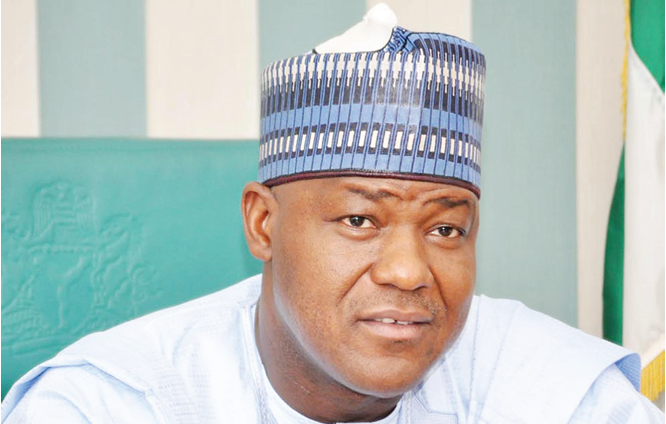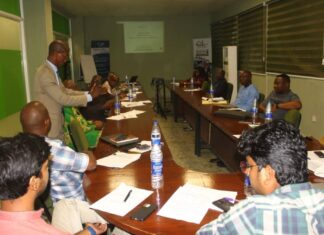By Emeka Alex Duru
The joke on politicians of the South East in the Second Republic was their tendency at promising to “water” (provide water) for communities or “fire” (provide electricity) for them, if elected them for positions they were angling for.
As it was known, such pledges, especially from those going for federal offices, were never taken beyond the campaign grounds were they were dropped.
They were, at best, mere vote-catching gimmicks that the politicians employed to hoodwink the trusting rural voters. Overtime however, the tactic began to fail as the electorate became more wary and less trusting.
To a very large extent, the current mockery being made of restructuring the country by the political elite, falls into that template.
Apparently realising that restructuring the country has become a topic that may see them easily counted among the so-called progressives of the nation’s political tendency, there is always a resort by office holders or those wishing to be taken seriously, to flaunt the subject, at any gathering that would earn them attention and further their political interest.
Funny enough, some of the latter day converts to the agenda, are those who have or have had opportunity to put it into practice, but had not done so. For them, throwing up the issue now, may grant them maximum political capital in the days ahead.
This is perhaps, where the sudden intrusion of the Speaker of the House of Representatives, Yakubu Dogara, on the debate, finds expression.
At a function in Abuja during the week, Dogara canvassed the creation of a unique system of federalism that best suits Nigerians and the local circumstances in the country.
Dogara, who spoke on “Reforming the Nigerian Federation: Which Way Forward”, said this could be actualised with leaders who are visionary, selfless, prudent, intelligent and indefatigable, and having integrity and honour.
He said: “Efforts at wishing away the problems associated with the Nigerian federation have only resulted in several tribal, ethnic and religious movements that have even metamorphosed into terrorist syndicates.
“One can, therefore, no longer fold his arms but engage some of the issues that have confronted us as a nation and threatened the Nigerian federation.
By making the intervention, Dogara has joined other Nigerians and groups demanding true federalism in the country.
Among these were former military president, Gen. Ibrahim Babangida and former vice president, Atiku Abubakar.
Babangida had argued the Nigerian federation, as currently structured, is in need of reforms that will emphasise the individual strength and advantages of the component units so that governments can really work to improve the lives of the citizens.
He said; “If we have repeatedly done certain things and not getting the desired results, we need to change tactics and approach, and renew our commitment. It is our collective responsibilities to engender a reform that would be realistic and in sync with modern best practices.
“For example, restructuring has become a national appeal as we speak, whose time has come. I will strongly advocate devolution of powers to the extent that more responsibilities be given to the states while the Federal Government is vested with the responsibility to oversee our foreign policy, defence, and economy.
He stressed that though restructuring and devolution of powers may not provide all the answers to Nigeria’s developmental challenges, the exercise will help to reposition the mindset of Nigerians as they generate new ideas and initiatives that would make the union worthwhile.
Atiku, who had earlier spoken on the issue, had made suggestions that involved changes to the allocation of powers, responsibilities and resources among the states or zones and between them and the federal government.
He particularly called for devolution of more powers and resources from the federal government as well as de-emphasizing federal allocations as the source of sustenance of states.
Before his recent intervention on the topic, Atiku, had five years ago, observed that; “There is indeed too much concentration of power and resources at the centre. And it is stifling our march to true greatness as a nation and threatening our unity because of all the abuses, inefficiencies, corruption and reactive tensions that it has been generating.
“There is need, therefore, to review the structure of the Nigerian federation, preferably along the basis of the current six geopolitical zones as regions and the states as provinces”.
Erstwhile Vice President, the late Alex Ekwueme, had actually laid a foundation that could have given form to a restructured country, if his contributions at the1994-1995 Constitution Conference that gave birth to the present six geo-political structures had been properly implemented.
Ekwueme, had on basis of economic, political, social and consanguine considerations, recommended structuring the country into the South East, South West, South-South, North West, North East and North Central zones.
Not even his critics could fault the fantastic idea, especially on the ease of administration and political convenience it offered.
Analysts also insist that the suggestion, when fully implemented, would guarantee true federalism and fiscal federalism.
Regional groups such as Afenifere, Ohanaeze Ndigbo and South South leaders have made similar demand.
The case against the existing arrangement is that it is skewed in favour of some parts, against the others.
It is also seen to be encouraging indolence and dependency among states, especially with the governors running to the centre at the end of the month for the so-called federal allocation.
This, it has been argued, has prevented the governors from thinking inwards on ways of generating revenues for administering the states.
Besides, with the allocation shared on the basis of the number of local governments in the states, those with high productive capacity but with fewer number of councils, have always been shortchanged by their counterparts with larger numbers without corresponding outputs.
This is where many look up to the Speaker to go beyond suggesting restructuring as basis for remaining valuable or positioning himself for political office in 2019.
The major snag against restructuring for instance, is that for it to be actualised, it has to be backed by law. Curiously, when the matter came up at the National Assembly in July last year, the Senate rejected the constitution alteration bill seeking the devolution of powers that would have moved some items from the bloated Exclusive List in the 1999 Constitution to the Concurrent List, which would have given more powers to the states.
As if that was not enough, President Muhammadu Buhari, had, within the same period, told those nursing the idea of tinkering with the current Nigeria’s structure to perish the thought.
Many saw the two developments, coming in quick succession, as constituting huge obstacles to the clamour for restructuring. Dogara and his colleagues in the House, are also not known to have done much in getting their counterparts in the Senate to take another look on the issue.
Whether the Speaker is thus, resurrecting the debate towards achieving meaningful result or merely adopting a populist posture ahead 2019 politics, may be seen with time.













